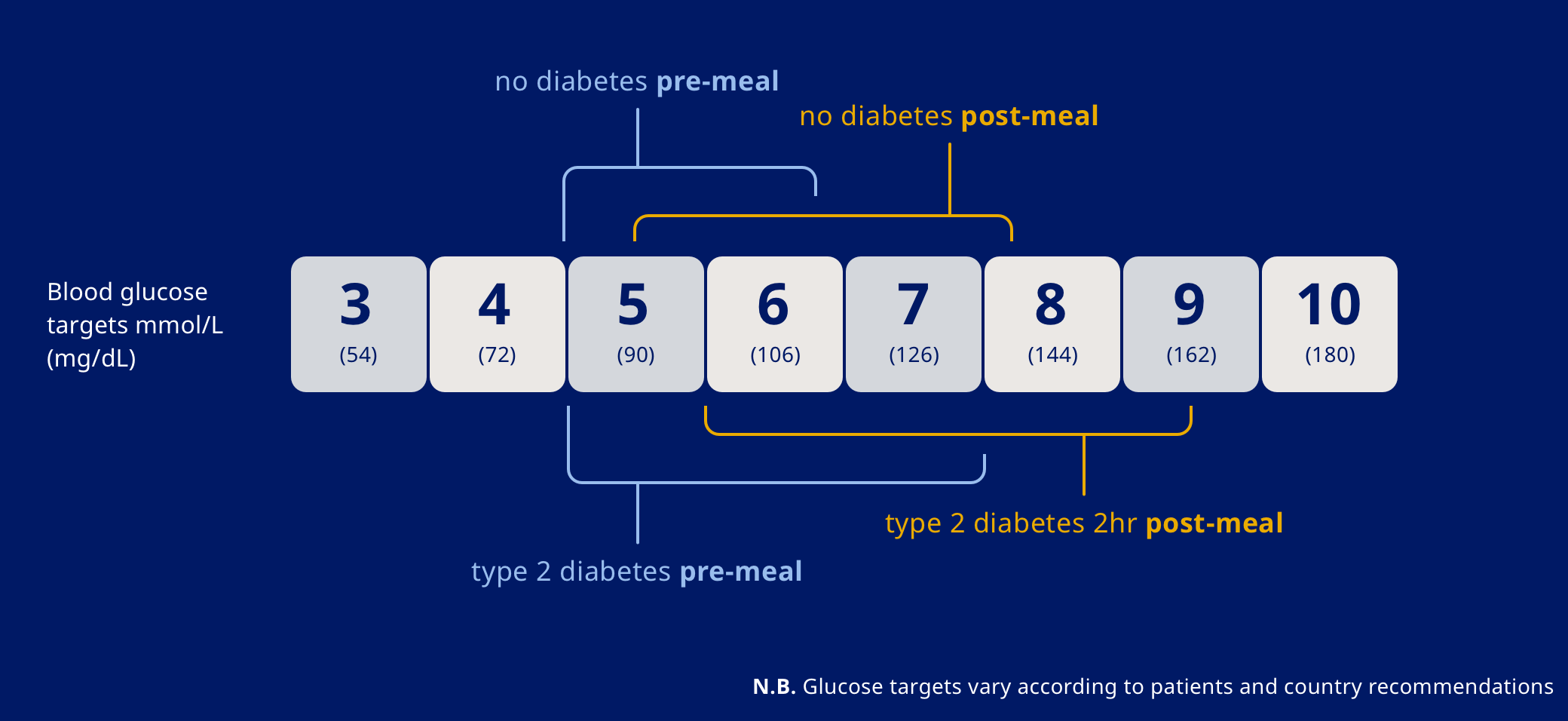Fasting
Checking in the morning before breakfast when your blood sugar is lowest
Blood sugar fluctuates over time due to various factors. Monitoring your blood sugar levels can help you keep track of how your body reacts to food, exercise and medication and how well you are controlling your diabetes.
You may not need to monitor your blood sugar in the early stages of type 2 diabetes. Your healthcare professional may recommend that you monitor when you start on GLP-1 or insulin treatments that may cause you to have low blood sugar. Blood sugar checks can be done anywhere. You prick your finger with a small needle and test a drop of blood using a device called a glucometer. Your healthcare professional will tell you when and how often you need to check your blood sugar. The following terms are used to describe glucose measurements taken at different times of day:
Checking in the morning before breakfast when your blood sugar is lowest
Checking right before a meal to see how much your levels change when you eat
Checking two hours after a meal when your blood sugar peaks
Keep in mind that a blood sugar check you perform yourself is not the same as the HbA1c test performed by your healthcare professional and the results cannot be compared.
The average blood sugar ranges for people with and without type 2
diabetes can be seen below.

Checking your blood sugar gives you a snapshot of your levels at a particular moment. Recording these measurements will show you your progress over time.
Accurately recording your blood sugar – as well as what you eat, when you exercise and emotional factors like stress – will identify the causes of unusual peaks and dips. This will help you to improve your diabetes management and avoid long-term health complications.
"I am a slow learner when it comes to numbers - but I promise you, I do what I can."
There are many tools available to help you record your measurements, including diaries and smartphone apps. Talk to your healthcare professional about which is right for you. You can also visit our Support section for other tips and techniques for managing your diabetes.
